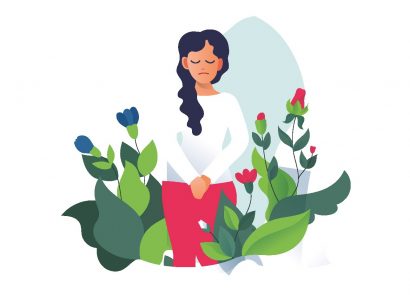It’s worth understanding from the get-go that no two people mess up in exactly the same way. You have your garden-variety screw-ups, which we’ve all done, such as ignoring the signs our bodies give us when burnout is imminent, or staying in a job where bullying is rampant. And then you have your over-achievement awards for screwing up – things I best not mention (brushes with death, debauchery and disease – whoopsie, thankfully you’re still here to tell the tale). But here’s the good news: whatever it is, there’s a way to fix it. Because burning out and being around what I like to call bully cockroaches is not really the issue here. The real issue is the soul sickness that so often results from choices that no longer serve us and, arguably, causes them in the first place. So, when you mess up, you learn from your mistakes and use them as your teacher – a map to a new reality. One you love.
Why you feel depressed after making a mistake
If you are less-than-amazed by life as you read this, know that you’re not alone. The negative feelings that come with making mistakes can lead to depression. Buried beneath the worldwide chorus of ‘I’m fine’ lies a global epidemic – depression is now the most widespread illness on earth, three years ahead of the World Health Organisation’s 2020 prediction. In the UK, according to statistics from mental health charity MIND (mind.org.uk), approximately one in four people in the UK will experience a mental health problem each year. Additionally, in England, one in six people report experiencing a common mental health problem (such as anxiety and depression) in any given week. This is despite the fact that, on paper, we’ve never had it so good. And unfortunately, when we put our head in the sand, keep saying we’re fine when we’re really not, and ignore the early warning signs, the downside is where at least one quarter of us end up – me included. And staging a comeback from these places isn’t all unicorns and rainbows – far from it. Because, according to the World Health Organisation, for near on one million people per year across the globe (that we know of) who don’t make it back to the upside, suicide is their only way out. For many others, a cycle of medication dependency often ensues.
How many of us feel this way?
To give you a perspective of how serious the epidemic of soul sickness is, in the journal PLOS ONE, antidepressant prescriptions have gone up almost 500 percent in the UK in the past 25 years. Clearly something is up, but what? To truly understand the challenges, I conducted my very own citizen research project, looking at 69 attributes of holistic wellbeing to uncover the root causes of our discontent. Over 2,000 women between 26 and 45 years of age from 80 countries took part. The findings – alongside my own and clients’ experiences, experts’ opinions and the latest science – have inspired the structure, content and recommendations of my book, Smart Girls Screw Up Too. So, while some of my observations and recommendations might seem silly or nonsensical, they are grounded in my experiences and supported by some of the world’s best thinkers. Some of the recommendations can be explained away by science. Some of them can’t – at least not yet. But at the end of the day, they are the things that worked for me and, more latterly, people who work with me, and so they are what I can bring to the table for you. Three-quarters of us, with all the trappings of our modern lives and careers, regularly feel uninspired and half of us feel bad more often than we feel good. These are the top two symptoms that cause us to make choices that see us pitch a tent or, for some, take a permanent posse on the downside.
Now what?
Anxiety involves worry about things that haven’t happened yet. In my research, women typically mention their top anxiety triggers to be housing affordability, credit card debt, dissatisfaction with their boss or lack of fulfilment in their work, or the biggie that is the missing love partner they don’t have time to find because they’re working to stay afloat. All of these factors have an impact on our fundamental biological needs as women to feel safe and secure. And when we don’t have these things – and society, peer groups and family infer that we should – there’s no wonder we’re in the midst of a wellbeing crisis. So, despite being totally different people with totally different DNA, raised by totally different parents, one thing is the same: one way or another, we’re silently stuck and above all we yearn to create a life we love.
Looking at it like that, one who knows there are some cracks in the vase [from making a mistake now and then] but has a desire to glue it back together differently has already taken the first step. And that is a really good thing, even though it may not feel like it now. It gives you the opportunity to change some things up and make life really work for you and those who matter to you. Because, facing that ‘it’s over’ moment is the one time when our disillusionment, overwhelm or not knowing what to do next forces us to sit still for a while and answer some big questions we’ve been putting off too long for another day.
5 ways to bounce back from a mistake
“Anyone who isn’t embarrassed of who they were last year probably isn’t learning enough” – Alain de Botton
1. Consider your mistakes as miss-takes – opportunities for growth and learning versus failure
2. Forgive yourself (and others) for the mistakes, and offer yourself compassion and self-love
3. Keep a journal of your mistakes, write down what you did and what you’d do differently next time around
4. Look for a positive outcome that came from making the mistake.
5. Know that you’ll bounce back with more experience than before.






















